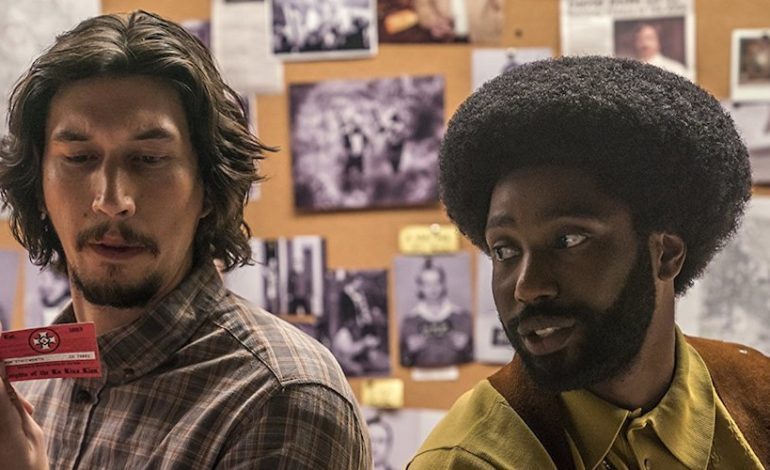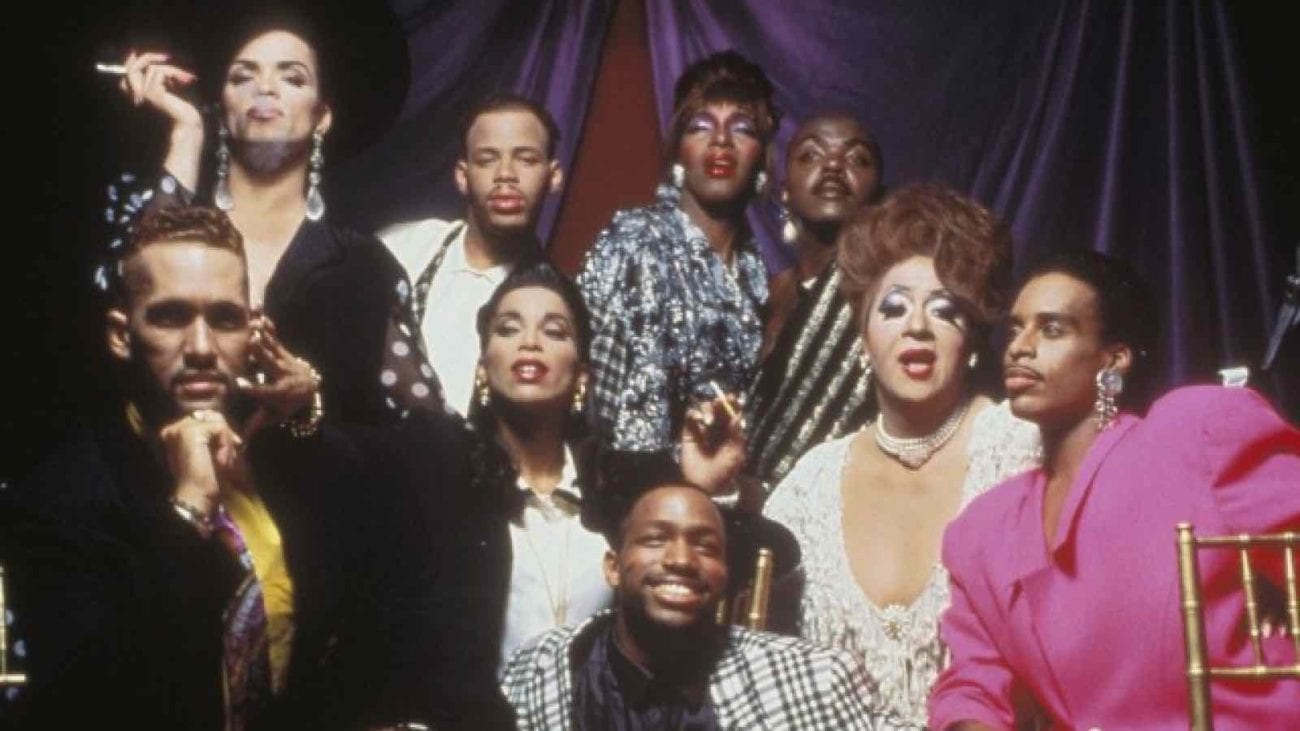

The United States has recently erupted into protests and riots across the nation in the wake of George Floyd’ murder at the hands of four police officers in Minneapolis, Minnesota. The Black Lives Matter protests sparked by this recent violence are the byproduct of a decade’s worth of injustice, in which hundreds of lives have been lost to police brutality. In this time of revolution, its important to promote and share artwork- film specifically that give voices to black creators and black narratives. This helps empower the people behind the movement and give them as much as a platform they need.
There are various fictional narratives, despite their fabricated method of storytelling, that portray the struggles and chronicles of black lives in a meaningful and beautiful way. Watching and supporting these films not helps support black directors and actors, but provides educational tools for understanding the black experience from a non-black perspective. These films will include a compilation of documentary-style, and reality based films that provide an ample educational platform for those interested in becoming more informed about the reality of black lives in America.
Beasts of the Southern Wild
Set in the back corner of the Louisiana bayou, Beasts of the Southern Wild focuses on the life of a little girl and her father. Their tumultuous relationship takes center stage in the film, with a large approaching storm forcing the community to deal with a new shortage of fresh water and a mission to destroy a nearby levee. It details a young black girls’ journey in self-discovery, as well as her interpersonal relationships with family and community in a beautiful and interesting context.
Out of all the films in this list, Beasts is definitely the least explicitly connected with social justice or racial issues. However, its inclusion is pointed, as there are lots of films out there that detail the Black experience as extremely traumatic and upsetting, to the point that Twitter users critique the film industry for pumping out “representational” films solely about on black trauma (i.e. 12 Years a Slave, The Hate U Give). While those films shed light on the hardships faced by black people in America, they can be seen as reductive by portraying these hardships as the totality of the black experience.
Beasts of the Southern Wild might not be the most lighthearted or uplifting of films, but it’s unique for telling an interesting narrative about a young black girl without explicitly focusing on the societal traumas she faces. Her interpersonal challenges are complex and multi-dimensioned, which is important for positive representation even when it’s steeped in fictional fantasy.
Sorry To Bother You


This wacky film adopts a fantastical and slightly comedic tone as it investigates what blackness means in the context of capitalism. Though dealing with fairly complex racial and economic issues, Sorry to Bother You does so in a digestible and fun way, with a very engaging plotline and visually pleasing stylistic choices.
Directed by Boots Riley, the film stars Lakeith Stanfield and Tessa Thompson as a young couple, with one pursuing a career in telemarketing while the other works as an artist. As Stanfield’s Cashuis Green proves his affinity for over-the-phone sales job by using a “white voice,” he rises in rank throughout the company, leaving behind friends and allies from the working class despite their reliance on him to revolt against their employer. The film then digresses into a crazy imagination of late-stage capitalism, providing an interesting commentary on the way corporation and the rich view laborers, specifically black laborers.
Blackkklansman


Blackkklansman meshes the stylistic choices of narrative film with the non-fictional reality of black police officer Ron Stallworth. Directed by Spike Lee, the film delves into the surprisingly true story of Stallworth (John David Washington), the first black police officer hired to the Colorado Springs police department in 1972. Stallworth is used by this precinct to investigate local Klu Klux Klan activities over the phone, while a white officer (Adam Driver) meets them in person using his name. The two even speak with Grand Wizard David Duke (Topher Grace) as he pays the town a visit.
This film offers an interesting perspective into a niche moment in history that was not extremely well-known before its release. The movie goes on to connect the various situations that Stallworth was involved in during the 1970s to current events in the United States, creating an interesting synthesis between racism in the past and the way it has persisted. This is made fully explicit in Blackkklansman’s final moments, where Lee cuts from the past to the 2017 Charlottesville Neo-Nazi rally, showing how his film’s absurd themes produce devastatingly real consequences.
Paris Is Burning


This documentary film captures the ball culture that became popularized in the 1980s in New York City. The participants of Paris is Burning’s ball culture are mostly non-white, comprised of both black dancers as well as non-black people of color. The film documents the lives of people of various backgrounds, gender expressions, sexualities, classes, and races as they came together to participate in drag competitions. It includes both footage of the balls and interviews with various contestants involved on the scene.
Paris is Burning works to recognize an extremely marginalized group within the black community; trans black folks. It is imperative to remember that during this time of the constant reminder that Black Lives Matter, that Black Trans Lives Matter as well. Violence against black trans women is extremely high in the United States, so raising awareness of this issue is necessary for the movement to ensure total equality.
13th

Directed by Ava DuVernay, 13th discusses the United States prison system and the issue of mass incarceration in America. The film’s thesis essentially argues that the privatized prison system, combined with America’s history of jailing black men, has turned the industry into a modern version of slavery. DuVernay discusses the history of slavery in the United States and Jim Crow-era discrimination against black citizens, then transitions into a modern retelling of history from the 1970s to present. The latter notes the way in which U.S. legislation and police practices has dramatically increased incarceration and perpetuated some of the same racist structures that defined slavery and sharecropping practices.
This documentary is important because, while there’s often heavy focus on the lives of free Black people, it’s necessary to recognize that a large population of black Americans are currently imprisoned. In order to understand the value of the lives of black people everywhere, one must understand the way in which the prison system perpetuates their systemic devaluation in American society. These victim of mass incarceration and police discrimination deserve acknowledgement during this time of social upheaval.
Whose Streets?


Released in 2017, Whose Streets chronicles the murder of Michael Brown and the subsequent protests and riots in Ferguson, Missouri. The situation that exploded in 2014 from the killing of this young man at the hands of police officer Darren Wilson is almost exactly similar to protests happening now in 2020. The Ferguson uprising was perhaps the most recent lurch forward in the Black Lives Matter movement pre-2020 and has shaped the campaign into what it stands for today.
Whose Streets is valuable to watch now, especially if one does not have a comprehensive understanding of Ferguson. While the BLM movement began as far back as 2012, it was the 2014 protest that shed light on the chronic persistence of police violence in America and our reluctance to change. For anyone new to the movement, this documentary will be a very formative viewing experience.
Honorable mentions:
I Am Not Your Negro, and Ethnic Notions: The Origins of the Sambo, the Coon, and Mammy. These films take on a much more academic perspective of black history. I am Not Your Negro is based on the writing of James Baldwin, a gay black author, and speaks on the issue of blackness in America through stories of the author’s friends and civil rights leaders, all narrated by Samuel L. Jackson. Ethnic Notions, by comparison, discusses the historical portrayal of black people in media, which any film buff would find extremely informative.
With all of these films listed, it is important to note that I am not a black woman or WOC. As much as I am able to write about film from a socially informed perspective, that is all my perspective can possibly be: well-educated. As a white person with the ability to publish an article both acknowledging the Black Lives Matter movement and promoting black creatives and histories, I feel as though publishing this article is the least I can do to put my privilege to use.
As for other white or non-black POC readers, perhaps the most important thing we can do is educate ourselves and use our privileges to uplift black voices and listen to them. The aforementioned films are only a small selection of black cinematography available, though I would consider them a good starting point to become an ally. Don’t stop self-educating with this list alone- push yourself to get involved in real time. Show your friends and family these movies and start conversations. It’s a simple but tangible step in the right direction for making the United States a decent place to live for citizens of all backgrounds.

/arc-anglerfish-tgam-prod-tgam.s3.amazonaws.com/public/NBPUMVAMGVABNGCXSKNJ2ZEE2Q)